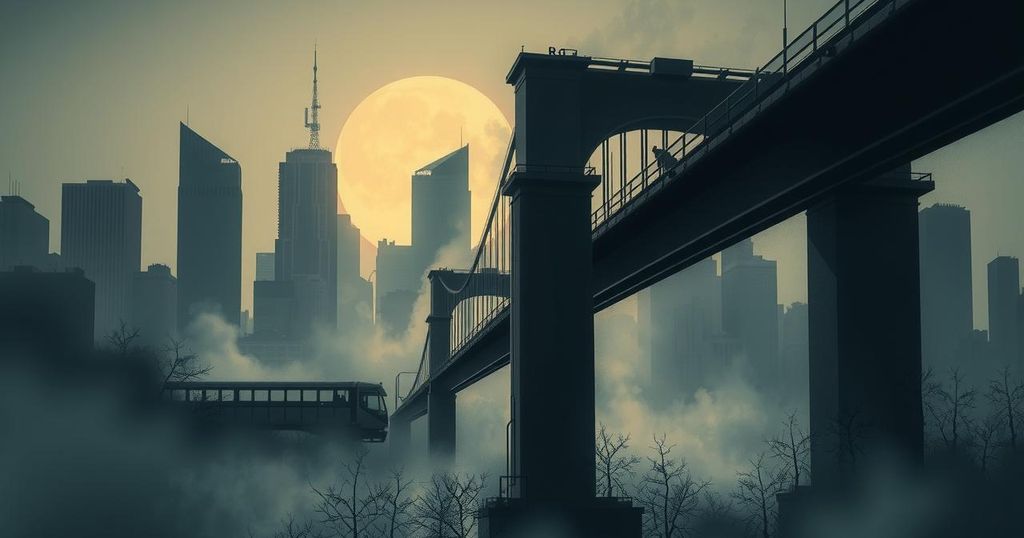Goma, Congo’s largest city, is in turmoil as Rwanda-backed M23 rebels claim control amid escalating violence. The leakage of gunfire and military movements has caused widespread fear among residents. The U.N. Security Council has condemned the rebels and called for a cessation of hostilities. Efforts to negotiate peace between Congo and Rwanda have failed, with significant humanitarian implications for the region.
Residents of Goma, the Democratic Republic of the Congo’s largest city, awoke to chaos and gunfire on Monday after Rwanda-backed M23 rebels declared they had taken control of the city. As the conflict escalates, military personnel were seen marching through Goma, causing fear among residents. The Congolese government has yet to confirm these reports of a takeover, amid conflicting accounts of the situation.
The M23 rebel group, supported by Rwanda, is one of numerous armed factions competing for dominance in the mineral-rich eastern Congo, a conflict that has persisted for decades. The group briefly seized Goma in 2012 before reemerging in late 2021, allegedly with increased backing from Rwanda, although the latter denies any such involvement.
The intensifying violence threatens to exacerbate already dire conditions in a region that is home to over six million displaced individuals, with a significant portion of North Kivu’s population affected. Experts have expressed concern that further hostilities could destabilize the region further, which is suffering from one of the world’s largest humanitarian crises.
In response to the escalating situation, the U.N. Security Council condemned the M23’s actions and demanded an urgent cessation of hostilities. The Council criticized the group’s activities that undermine the sovereignty of the DRC and urged a reversal of any territorial gains.
On Monday, as the rebels claimed to have overtaken Goma, they issued a surrender ultimatum to government security forces, instructing them to convene at a central stadium. The Congolese authorities characterized the situation as a state of war and accused Rwanda of aggression, severing diplomatic ties over the weekend after failed negotiations.
This latest advance is the culmination of ongoing battles, during which several towns have fallen to the M23. Hundreds of Goma residents began fleeing to Rwanda, carrying personal belongings as they escaped the violence. Witnesses reported witnessing bomb explosions and shootings near the border.
U.N. officials highlighted the dire situation, stating, “we are trapped,” as transportation routes to safety were obstructed and the local airport remained closed. The U.N. peacekeeping mission in the region has suffered casualties, with at least 13 peacekeepers killed recently amidst the hostilities.
Additionally, reports indicated that over 100 Congolese soldiers had surrendered. The Uruguayan army, part of the U.N. contingent in Goma, confirmed this development, further illustrating the gravity of the security crisis in the area.
The conflict in eastern Congo, particularly in the North Kivu province, has its roots in historical tensions and warfare, exacerbated by the involvement of various armed groups. The M23 rebel group has been a significant actor since its formation in 2012, receiving alleged support from Rwanda. The region’s strategic mineral wealth continues to attract both local and foreign interests, fueling ongoing clashes. Efforts toward peace have often been undermined by repeated escalations in violence and humanitarian crises affecting millions.
The situation in Goma remains critical as residents face uncertainty amidst gunfire and military movements. The M23 rebels’ claims of capturing the city have raised severe alarms regarding stability in the region. With the U.N. urging the rebels to cease actions and with the Congolese government declaring a war situation, the future remains perilous. Increased violence has already led to significant casualties among peacekeeping forces and countless displacements among civilians.
Original Source: apnews.com






